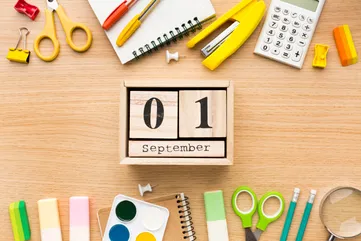College Transition
College transition is the complex process of moving from high school's structured environment to college's independence, requiring academic, social, emotional, and practical adjustments.
Why college transition challenges capable students
The college transition involves simultaneous major life changes that would challenge anyone, particularly teens whose brains are still developing executive function.
Major transition challenges:
• Loss of familiar support systems
• Dramatic increase in unstructured time
• Social navigation in new environment
• Academic expectations without scaffolding
• Daily living responsibilities
• Identity renegotiation away from home
Even well-prepared students often struggle with this massive adjustment.
You're not alone
If your confident teen calls crying during the first weeks of college, or your social butterfly is suddenly isolated and overwhelmed, you're experiencing normal transition challenges. Studies show that 60% of freshmen report feeling overwhelmed, and 40% experience significant homesickness. Many parents feel helpless watching their teens struggle from afar. The transition period typically lasts 6-12 weeks, though some students need a full semester to adjust. Support without rescuing helps teens develop resilience.
What it looks like day to day
Student
Your teen who managed high school beautifully now skips classes, forgets to eat regular meals, and can't balance social life with academics.
Parent
You receive panicked texts about minor problems your teen would have handled independently at home, struggling to gauge when to intervene.
Tiny steps to try
Support healthy transition through preparation and graduated independence.
- 1
Summer practice
Use the summer before college to practice independence. Have your teen manage their own schedule, meals, and responsibilities.
- 2
Connection planning
Before leaving, identify support resources: counseling center, academic support, health services. Normalize help-seeking as strength.
- 3
Regular check-ins
Schedule weekly calls initially, adjusting frequency as comfort grows. Predictable connection reduces anxiety for everyone.
- 4
Problem-solving partnership
When issues arise, ask "What resources are available there?" before offering solutions. Build problem-solving confidence.
- 5
Transition timeline
Remind your teen that adjustment takes time. Share that Thanksgiving break often marks when college starts feeling like home.
References
Arnett, J. J. (2014). Emerging adulthood: The winding road from the late teens through the twenties (2nd ed.). Oxford University Press.
Credé, M., & Niehorster, S. (2012). Adjustment to college as measured by the Student Adaptation to College Questionnaire: A quantitative review of its structure and relationships with correlates and consequences. Educational Psychology Review, 24(1), 133-165.
Ready to help your teen thrive?
Get personalized 1-on-1 coaching to build better habits and boost grades. Join 10,000+ families who trust Coachbit.
Frequently Asked Questions
How do we know if struggle is normal adjustment or serious problems?
Normal adjustment involves temporary challenges with gradual improvement. Warning signs include persistent decline after 6-8 weeks, complete social isolation, significant weight changes, missing multiple classes, or expressions of hopelessness. Trust your instincts. If concerned, encourage your teen to visit campus counseling. Most issues fall within normal adjustment, but early intervention helps when needed.
Should we visit if our teen is struggling?
Generally, give adjustment time before visiting unless there's genuine crisis. Early visits can impede independence development and social integration. If you visit, keep it brief and avoid solving problems your teen should handle. Sometimes knowing you could visit provides enough security. Each situation is unique; balance support with encouraging independence.
Related Terms
College Readiness
College readiness encompasses the academic skills, executive functioning abilities, self-advocacy capabilities, and life skills teens need to successfully transition to and thrive in college.
Self-Advocacy
Self-advocacy is the ability to understand your needs, communicate them clearly to others, and take action to get appropriate support or accommodations.
Related Articles

3 Ways an Executive Functioning Coach Can Help Your Child
Discover why executive functioning skills are crucial for your child's success. Learn how an executive functioning coach can make a difference
Read article
4 Healthy Habits To Set Your Teen Up For Life
Set your teen up for life with 4 healthy habits. Quality sleep, digital wellbeing, balanced scheduling, and stress management for a successful future!
Read article
Finding Order in the Chaos – Setting up Calendars for Kids
Creating a calendar and daily schedule for kids can be beneficial to manage school, homework, extracurriculars and hobbies. Color-coding and time-blocking are helpful tools for kids with ADHD.
Read article
